Environmental Impact:
Throughout their lifespans, electric vehicles (EVs) produce less than half the greenhouse gas (GHG) emissions of equivalent gasoline-powered cars. This accounts for emissions from vehicle manufacturing, battery production, and vehicle operation. Furthermore, the ongoing transition to cleaner electricity sources in the United States ensures that these environmental advantages will further improve in the years ahead. Additionally, EV batteries have potential for reuse, and the minerals within these batteries can be recycled virtually endlessly.
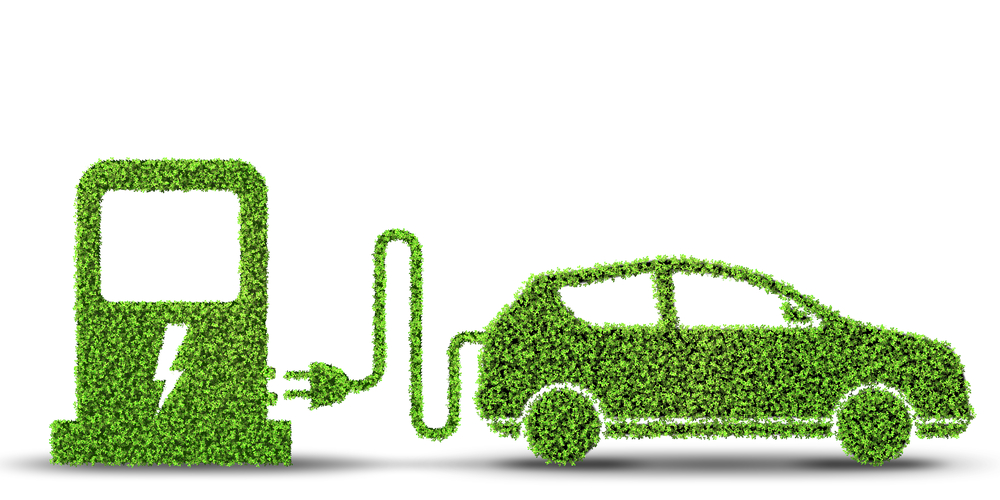
Cost less to Fuel:
Fueling your vehicle with electricity comes at a significantly lower cost, approximately 60% less than purchasing gasoline. Moreover, if you have the convenience of home charging, it’s exceptionally easy. Like charging your smartphone, you simply plug it in upon arriving home and leave it until morning, greeted with a fully charged battery. Depending on your electric utility, you might have the opportunity to maximize savings by scheduling your car to charge during off-peak rate hours.
Lower Operating Costs:
According to a recent analysis conducted by Consumer Reports, examining repair and maintenance records from numerous drivers, EV owners spend approximately half of what fossil-fuel vehicle owners do on upkeep and repairs. This translates to no expenses for oil changes, transmission fluids, or radiators. Beyond the cost savings, this also frees up your time, eliminating the need to wait for your vehicle to undergo servicing.
Better Warranties:
Typical gasoline vehicles typically come with a powertrain warranty spanning 5 years or 50,000 miles. However, thanks to federal regulations, electric vehicle (EV) batteries are mandated to have warranties extending to 8 years or 100,000 miles. In California, where regulations are even more stringent, EV battery warranties are set at an impressive 10 years or 150,000 miles. When considering your car as a significant investment, this assurance provides peace of mind in knowing your EV is well-protected.
Improve Public Health:
In the United States, transportation emissions stand as the primary contributor to air pollution. These emissions from vehicle tailpipes have been linked to various health issues, including asthma in both adults and children, cardiovascular ailments, lung cancer, and premature mortality. Notably, individuals from communities of color are 64% more likely than their white counterparts to reside in areas with unhealthy air quality.
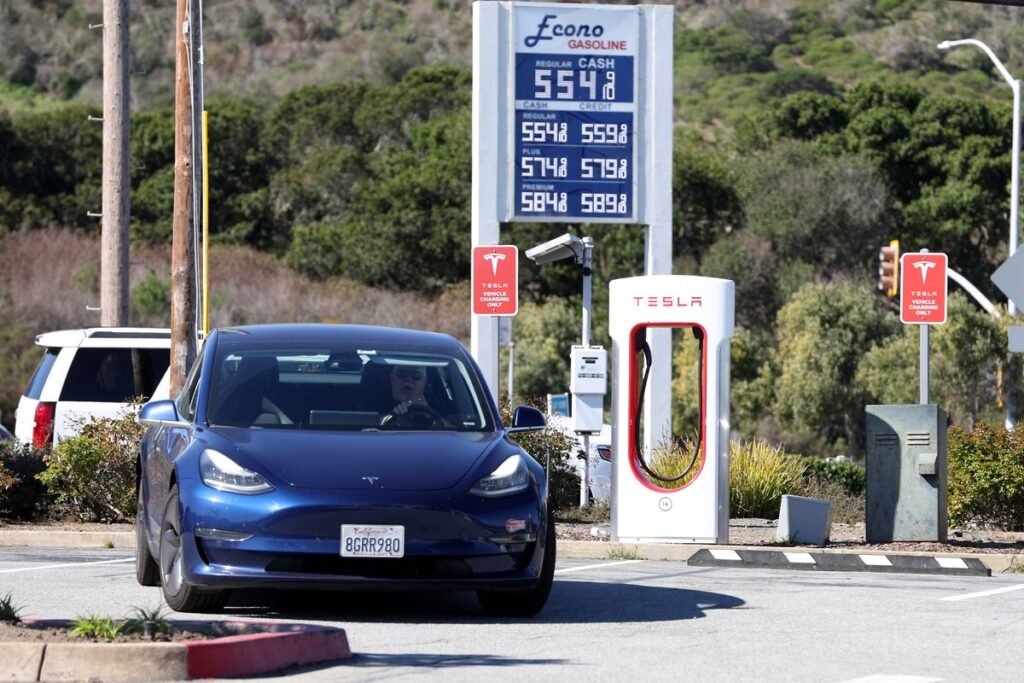
Encouragingly, electric vehicles (EVs) are beginning to effect positive change. A recent study examined specific zip codes and found that as the number of registered EVs increased within these areas, local air pollution levels decreased, subsequently leading to a reduction in emergency room visits.
Creating Jobs:
Thanks to recent federal funding in EV infrastructure and adoption, there has been a substantial boost in U.S. manufacturing investments, totaling an impressive $87 billion since late 2021. This surge in investments has also resulted in the creation of approximately 143,000 new jobs in the United States, particularly in the fields of battery and EV manufacturing. An analysis highlights those states such as Tennessee, Michigan, Ohio, Indiana, Kentucky, Kansas, North Carolina, and South Carolina have emerged as significant beneficiaries of this manufacturing investment.
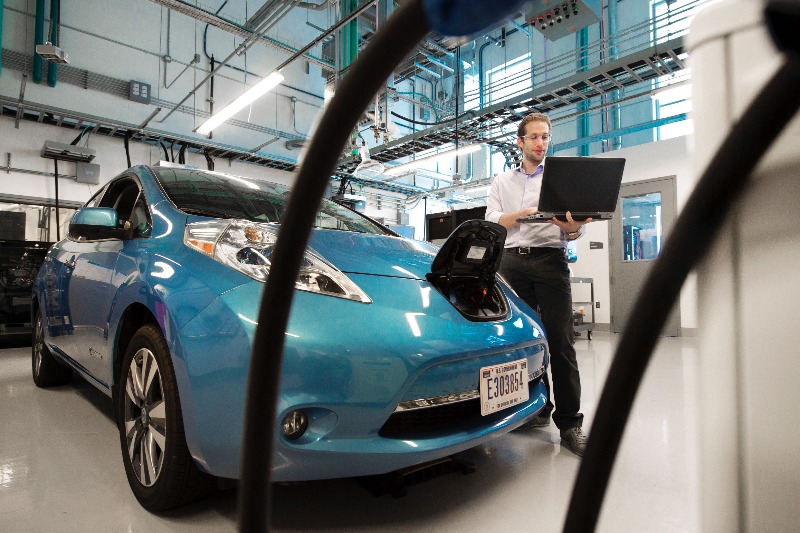
EV’s are better for Grid:
Electric vehicles serve as mobile power storage solutions, efficiently transporting us to our destinations. Given that most EVs are utilized only a fraction of the day, they can take advantage of clean, cost-effective, and readily available grid energy for charging. Additionally, some EVs offer the capacity to store excess energy for future use through vehicle-to-grid or vehicle-to-home capabilities. Remarkably, even in the absence of these advantages, a recent study revealed that EVs are playing a pivotal role in lowering rates for California’s largest utilities, contributing approximately $1.7 billion more in revenues than costs.
Government Incentives:
The Inflation Reduction Act has extended and broadened federal tax incentives for electric vehicles (EVs). Numerous EV models qualify for substantial income tax credits, with some eligible for up to $7,500. Additionally, certain EV models not listed on the fueleconomy.gov website may still offer incentives, such as reduced lease rates. Beyond these incentives for new clean vehicles, used EVs can benefit from a $4,000 tax credit through participating dealers, which can be applied as a down payment or lower monthly payments.
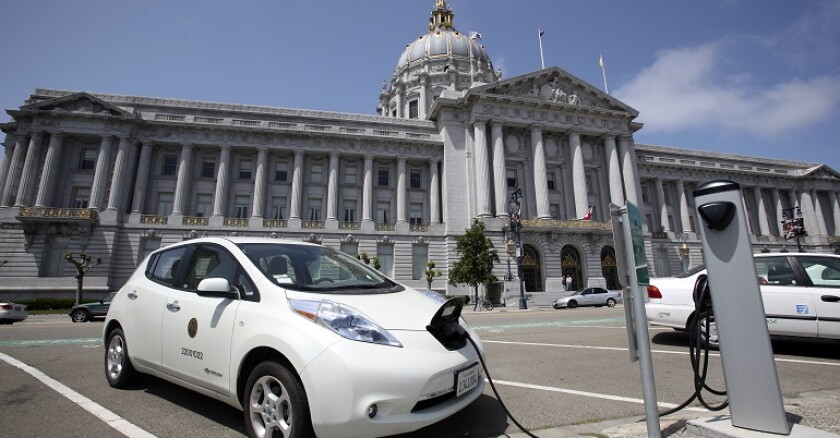
Moreover, businesses and tax-exempt entities can also access significant EV tax credits, with potential benefits of up to $40,000 per vehicle. Beyond federal incentives, many states and utility companies offer various incentives for EV purchases, including cash incentives, access to high-occupancy vehicle (HOV) lanes, and reduced electricity rates. Depending on your location, you may even qualify for incentives when installing a charger for your EV.
Energy Efficiency:
The transportation sector currently accounts for roughly 70% of U.S. petroleum consumption. Electric vehicles (EVs), by not relying on gasoline, play a crucial role in decreasing America’s reliance on foreign oil. When plugged into the U.S. grid, EVs contribute to diversifying the country’s transportation energy sources, incorporating renewables and other domestic resources. This diversification serves as a safeguard against market disruptions caused by embargoes, shortages, and political conflicts, ultimately shielding drivers from the price fluctuations often seen at the gasoline pump.
Quiet and Smooth:
One of the standout benefits of electric vehicles (EVs) lies in their serene and smooth operation. Unlike traditional internal combustion engine (ICE) vehicles, EVs are notably quiet and offer an exceptionally smooth ride. the absence of a traditional combustion engine in EVs results in near-silent operation. When you press the accelerator, you’re met with a whisper-quiet response, making for a peaceful driving experience. This not only reduces noise pollution in urban areas but also creates a more tranquil atmosphere inside the vehicle for both the driver and passengers.
Instant Torque:
One of the most striking features of electric vehicles (EVs) is their ability to deliver instant torque. Unlike traditional internal combustion engine (ICE) vehicles, which often require a buildup of engine RPMs to reach peak torque, EVs provide their maximum torque almost instantly. This characteristic fundamentally changes the driving experience and offers numerous advantages.
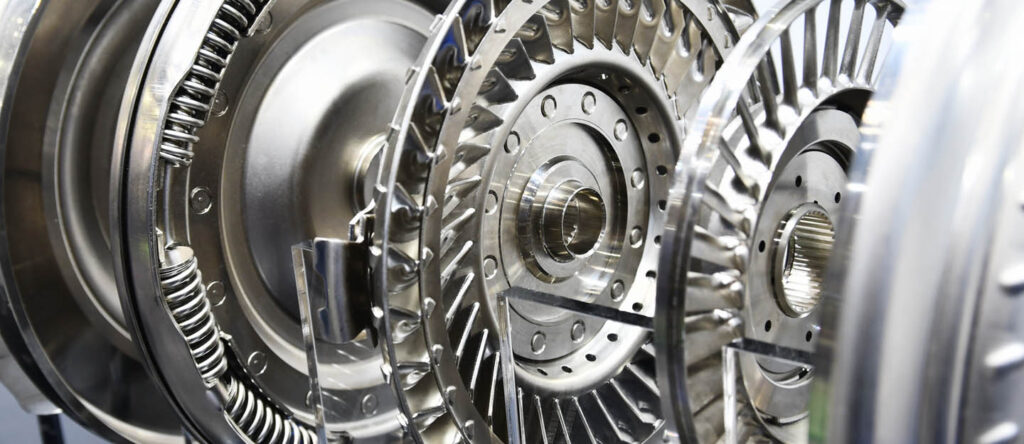
In an electric vehicle, the electric motor generates torque from the moment you press the accelerator pedal. This immediate response results in rapid acceleration and a thrilling driving experience. Whether you’re at a standstill or cruising at highway speeds, the surge of power is readily available, making overtaking other vehicles or merging onto highways a breeze.
Reduced Air Pollution:
Electric vehicles (EVs) are champions in the fight against air pollution. Unlike conventional gasoline or diesel vehicles that emit harmful pollutants into the atmosphere, EVs produce zero tailpipe emissions. This means no exhaust fumes containing pollutants like carbon monoxide, nitrogen oxides, or particulate matter.
By using EVs, we can significantly improve urban air quality, reduce smog formation, and mitigate the health risks associated with poor air. EVs are a key solution in the quest for cleaner, healthier cities, making them an eco-friendly choice for conscientious drivers and a step towards a more sustainable future.
Charging Convenience:
One of the standout advantages of electric vehicles (EVs) is the unparalleled charging convenience they offer. Unlike traditional gasoline vehicles, EV owners can charge their vehicles at home, eliminating the need for frequent trips to gas stations. Simply plug your EV into a standard electrical outlet or a dedicated home charging station, and your car replenishes its battery overnight, ready for your daily commute.
Moreover, an expanding network of public charging stations across urban areas and highways makes long-distance travel in EVs increasingly feasible. Many charging stations provide fast-charging options, allowing you to add significant range in a short time. With the growing infrastructure and home charging capabilities, EVs are revolutionizing how we power our vehicles, making it more convenient and accessible than ever before.
Resale Value:
Electric vehicles (EVs) are not only an environmentally responsible choice; they can also be financially savvy. One notable advantage is their impressive resale value. Unlike traditional gasoline cars that often depreciate rapidly, EVs tend to retain their value well over time.
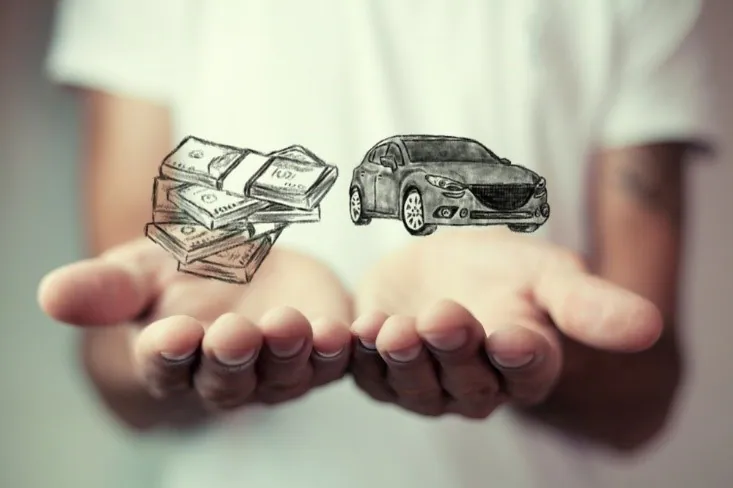
Several factors contribute to this phenomenon. EVs typically have lower maintenance costs due to their simplified drivetrains and fewer moving parts, which appeals to buyers seeking long-term savings. Additionally, as the demand for EVs continues to rise, the resale market for used electric vehicles is robust.
Fun to Drive:
While a significant portion of the power in gasoline vehicles dissipates as heat energy (ever felt the heat from a running engine?), electric vehicles (EVs) efficiently channel power directly to the wheels. This not only enhances their efficiency but also results in rapid acceleration. Thanks to instant torque, smooth acceleration, nearly silent operation, and a lower center of gravity achieved through strategic battery placement, EVs provide an exceptionally enjoyable and comfortable driving experience.
My Experience:
I have been driving an electric vehicle for the past three years, it really an amazing experience overall, charged at home within couple of hours, no noise, great performance, tension free for putting gas or petrol, easy to drive. I am fully satisfied with my EV, what about you???












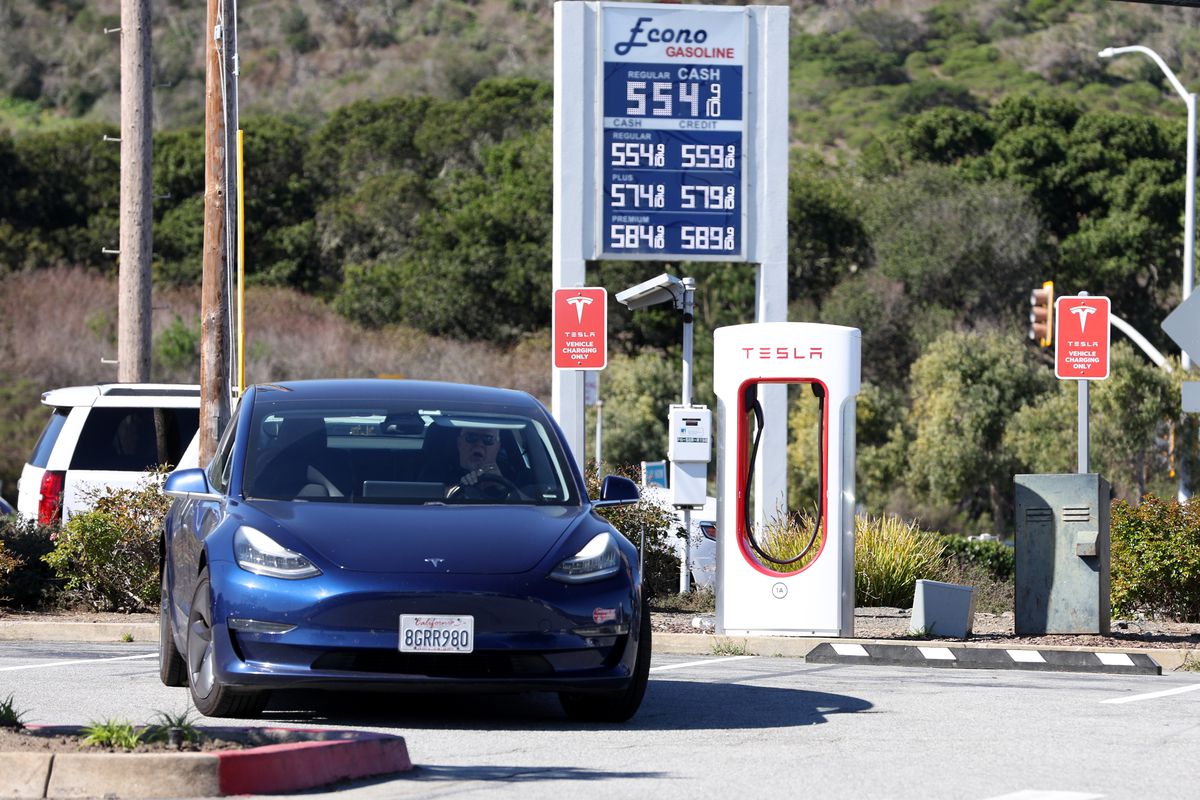




vurcazkircazpatliycaz.dAAlNveeJmCc
You could definitely see your expertise in the work you write. The world hopes for more passionate writers like you who are not afraid to say how they believe. Always go after your heart.
What i do not understood is actually how you are not really much more smartly-favored than you may be now. You’re so intelligent. You realize thus significantly when it comes to this matter, made me for my part consider it from so many various angles. Its like men and women are not involved unless it?¦s something to accomplish with Woman gaga! Your personal stuffs excellent. At all times deal with it up!
F*ckin’ awesome things here. I am very glad to see your post. Thanks a lot and i am looking forward to contact you. Will you kindly drop me a e-mail?
Wonderful items from you, man. I have bear in mind your stuff previous to and you’re just too fantastic. I actually like what you’ve acquired right here, really like what you’re stating and the way during which you are saying it. You’re making it enjoyable and you continue to take care of to keep it wise. I can not wait to learn far more from you. This is really a tremendous web site.
You are a very smart person!
Merely wanna input on few general things, The website design and style is perfect, the subject material is really great : D.
Pretty nice post. I just stumbled upon your weblog and wanted to say that I’ve truly enjoyed browsing your blog posts. In any case I’ll be subscribing to your feed and I hope you write again soon!
Hello, Neat post. There is an issue together with your site in web explorer, may check this?K IE still is the marketplace chief and a big section of folks will leave out your wonderful writing because of this problem.
I like what you guys are up too. Such clever work and reporting! Keep up the superb works guys I’ve incorporated you guys to my blogroll. I think it will improve the value of my web site 🙂
Hello.This article was extremely remarkable, particularly since I was browsing for thoughts on this subject last Friday.
I envy your work, regards for all the great articles.
fantastic post, very informative. I wonder why the other specialists of this sector don’t notice this. You must continue your writing. I am confident, you have a huge readers’ base already!
I’d constantly want to be update on new blog posts on this internet site, saved to favorites! .
Wow! This blog looks just like my old one! It’s on a completely different subject but it has pretty much the same page layout and design. Outstanding choice of colors!
I’ve learn some excellent stuff here. Certainly value bookmarking for revisiting. I surprise how a lot attempt you set to create such a magnificent informative web site.
I cling on to listening to the newscast talk about receiving boundless online grant applications so I have been looking around for the finest site to get one. Could you advise me please, where could i find some?
wonderful issues altogether, you simply gained a brand new reader. What may you suggest in regards to your put up that you just made some days in the past? Any certain?
Some genuinely nice and utilitarian info on this internet site, as well I think the style and design has got wonderful features.
I like this website so much, saved to my bookmarks.
You have mentioned very interesting details! ps decent web site.
You really make it appear really easy along with your presentation however I find this topic to be really something that I feel I would by no means understand. It sort of feels too complicated and extremely vast for me. I am looking ahead on your next publish, I¦ll try to get the cling of it!
Can I simply say what a reduction to find somebody who actually knows what theyre speaking about on the internet. You positively know methods to deliver a difficulty to gentle and make it important. Extra individuals need to learn this and perceive this aspect of the story. I cant believe youre no more in style because you undoubtedly have the gift.
Your place is valueble for me. Thanks!…
Thanks – Enjoyed this update, is there any way I can receive an email when there is a fresh update?
Very interesting info!Perfect just what I was searching for!
But wanna remark on few general things, The website style is perfect, the subject matter is really excellent. “Good judgment comes from experience, and experience comes from bad judgment.” by Barry LePatner.
Hey very cool website!! Man .. Excellent .. Wonderful .. I’ll bookmark your website and take the feeds additionally?KI am happy to find so many helpful information right here in the submit, we’d like develop extra techniques in this regard, thank you for sharing. . . . . .
SightCare
Cellucare
Sight Care
I conceive other website proprietors should take this web site as an model, very clean and fantastic user pleasant pattern.
I was very pleased to find this web-site.I wanted to thanks for your time for this wonderful read!! I definitely enjoying every little bit of it and I have you bookmarked to check out new stuff you blog post.
Fitspresso review
Opinipix paga
Ikaria Lean Belly Juice reviews
Fitspresso review
Fitspresso
Fitspresso
Fitspresso
Dentavim review
Fitspresso review
Fitspresso review
Fitspresso
Fitspresso review
Ikaria Lean Belly Juice review
Lottery defeater system review
Neotonics gummies
Lottery defeater reviews
Sight Care
Fitspresso is a brand-new natural weight loss aid designed to work on the root cause of excess and unexplained weight gain. The supplement uses an advanced blend of vitamins, minerals, and antioxidants to support healthy weight loss by targeting the fat cells’ circadian rhythm
Kerassentials
Fitspresso review
sugar defender reviews
Javaburn reviews
Fitspresso
Fitspresso
You made some decent points there. I looked on the internet for the topic and found most people will agree with your website.
I really like your blog.. very nice colors & theme. Did you make this website yourself or did you hire someone to do it for you? Plz answer back as I’m looking to construct my own blog and would like to find out where u got this from. cheers
Fitspresso reviews
Fitspresso is a brand-new natural weight loss aid designed to work on the root cause of excess and unexplained weight gain. The supplement uses an advanced blend of vitamins, minerals, and antioxidants to support healthy weight loss by targeting the fat cells’ circadian rhythm
Fitspresso review
Fitspresso is a brand-new natural weight loss aid designed to work on the root cause of excess and unexplained weight gain. The supplement uses an advanced blend of vitamins, minerals, and antioxidants to support healthy weight loss by targeting the fat cells’ circadian rhythm
Java Burn review
sugar defender benefits
Lottery defeater software reviews
Fitspresso reviews
Fitspresso review
Sightcare reviews
Lottery defeater system review
Neotonics gummies review
Flexible Conduit Pipes in Iraq ElitePipe Factory’s Flexible Conduit Pipes are a testament to our dedication to superior quality and dependability. These conduits are engineered to offer unmatched flexibility and durability, making them perfect for various applications, including electrical installations and protective covering for cables. Our Flexible Conduit Pipes are crafted to withstand harsh conditions while providing ease of installation and long-term performance. As a leading name in Iraq’s manufacturing sector, ElitePipe Factory ensures that our products meet the highest standards. Explore more about our Flexible Conduit Pipes at elitepipeiraq.com and experience why we are considered one of the most reliable providers in the region. elitepipeiraq.com.
Nano defense pro
Fitspresso review
NITRIC BOOST REVIEWS
PROVADENT REVIEW
Neotonics gummies review
Lift detox black reclamações
provadent reviews
PROVADENT
Lottery defeater reviews
SightCare reviews
ELECTROSLIM REVIEWS
Lottery defeater reviews
The genius wave software
Dentavim review
JOINT GENESIS REVIEWS
Bwer Company is a top supplier of weighbridge truck scales in Iraq, providing a complete range of solutions for accurate vehicle load measurement. Their services cover every aspect of truck scales, from truck scale installation and maintenance to calibration and repair. Bwer Company offers commercial truck scales, industrial truck scales, and axle weighbridge systems, tailored to meet the demands of heavy-duty applications. Bwer Company’s electronic truck scales and digital truck scales incorporate advanced technology, ensuring precise and reliable measurements. Their heavy-duty truck scales are engineered for rugged environments, making them suitable for industries such as logistics, agriculture, and construction. Whether you’re looking for truck scales for sale, rental, or lease, Bwer Company provides flexible options to match your needs, including truck scale parts, accessories, and software for enhanced performance. As trusted truck scale manufacturers, Bwer Company offers certified truck scale calibration services, ensuring compliance with industry standards. Their services include truck scale inspection, certification, and repair services, supporting the long-term reliability of your truck scale systems. With a team of experts, Bwer Company ensures seamless truck scale installation and maintenance, keeping your operations running smoothly. For more information on truck scale prices, installation costs, or to learn about their range of weighbridge truck scales and other products, visit Bwer Company’s website at bwerpipes.com.
Erec prime reviews
Lottery defeater
TonicGreens
Pro nerve 6 review
Pineal XT review
Provadent
Lottery defeater reviews
LOTTERY DEFEATER SOFTWARE
Plantsulin review
Flexigenics reviews
Boostaro review
Lottery defeater system reviews
Boostaro reviews
Fitspresso reviews
Sight Care review
Lipozem
The genius wave
Puravive
Nanodefense reviews
Lipozem reviews
GLUCO6 REVIEW
Boostaro review
Quietum Plus review
TONIC GREENS REVIEWS
nitric boost results
The genius wave reviews
Alpha bites reviews
Lipozem review
PROVADENT
SUGAR DEFENDER REVIEW
Alpha bites review
LIPOZEM
nitric boost powder
Alphabites review
LOTTERY DEFEATER
ALPHA BITES REVIEWS
LOTTERY DEFEATER
BOOSTARO REVIEW
ALPHA BITES REVIEWS
Alpha bites
TURMERIC HACK FOR WEIGHT LOSS
LIPOZEM REVIEW
PURAVIVE REVIEW
Thanks for sharing excellent informations. Your website is very cool. I am impressed by the details that you have on this web site. It reveals how nicely you understand this subject. Bookmarked this web page, will come back for more articles. You, my friend, ROCK! I found just the info I already searched everywhere and simply could not come across. What a perfect site.
LipoSlim
LipoSlim review
NERVOVIVE
Fitspresso review
All Day Slimming Tea Reviews
Alpha bites reviews
Lipozem
Alphabites review
Nice post. I used to be checking constantly this
blog and I am impressed! Extremely useful info
specifically the remaining part 🙂 I care for
such info a lot. I was looking for this certain info for a very long time.
Thank you and best of luck.
Also visit my website herpesyl
Alpha bites review
Alphabites review
Femi pro reviews
MANNAFLUX REVIEW
Kerassentials review
Alpha bites review
Boostaro
Booster XT results
Alpha bites
Alphabites
where to buy Booster XT
NEUROQUET REVIEW
Alpha bites reviews
Fitspresso review
Mitolyn review
Lipozem
Mitolyn review
MITOLYN REVIEWS
Mitolyn
buy Booster XT
Lottery defeater software reviews
Fitspresso review
Alphabites
Alpha bites reviews
Nicoya PuraTea reviews
Mitolyn review
Mitolyn review
Mitolyn review
Mitolyn
Mitolyn review
Mitolyn reviews
Mitolyn reviews
Mitolyn review
Mitolyn review
Mitolyn
Mitolyn
Mitolyn review
Mitolyn reviews
Lipozem reviews
BOOSTER XT REVIEW
Please let me know if you’re looking for a article writer for
your blog. You have some really good articles
and I believe I would be a good asset. If you ever want to take some of the
load off, I’d absolutely love to write some material for your
blog in exchange for a link back to mine. Please send
me an email if interested. Cheers!
Take a look at my web page; fitspresso uk
Mitolyn reviews
Mitolyn reviews
Fitspresso reviews
Fitspresso reviews
ALPHA BITES REVIEW
Mitolyn
Mitolyn review
Mitolyn reviews
NAGANO LEAN BODY TONIC
Mitolyn
Mitolyn review
Mitolyn review
PROSTAZEN REVIEW
PROSTAZEN
Mitolyn reviews
TRIBAL FORCE X REVIEW
TONIC GREENS REVIEW
Mitolyn reviews
TRIBAL FORCE X REVIEWS
Mitolyn reviews
LOTTERY DEFEATER
Mitolyn review
Lottery Defeater review
ALPHA BITES
Mitolyn review
PROVADENT REVIEWS
Mitolyn
Cu servicii de contabilitate pret accesibile ?i transparente, Lorand Expert va ajuta sa economisi?i timp ?i bani. Oferim solu?ii personalizate pentru fiecare afacere, garantand calitate ?i conformitate fiscala.
Mitolyn
Mitolyn reviews
Mitolyn review
Mitolyn
Mitolyn reviews
Mitolyn review
Mitolyn review
Mitolyn
MITOLYN REVIEW
новое мфо онлайн круглосуточно — это решение, которое работает. Наш список проверенных МФО обеспечивает прозрачные условия и мгновенные переводы, что важно для срочных ситуаций.
SIGHT CARE
MITOLYN REVIEWS
LEANBIOME REVIEWS
MITOLYN REVIEWS
Very energetic article, I loved that a lot.
Will there be a part 2?
my blog – testoprime walmart
ERECPRIME REVIEWS
LOTTERY DEFEATER SOFTWARE
Tonic greens
Quietum plus review
LOTTERY DEFEATER
LOTTERY DEFEATER SOFTWARE
MITOLYN
I think you have remarked some very interesting details , regards for the post.
MITOLYN
MITOLYN
LOTTERY DEFEATER REVIEWS
LOTTERY DEFEATER SOFTWARE
DENTICORE REVIEWS
PROSTAVIVE
MITOLYN REVIEWS
TONIC GREENS REVIEWS
MITOLYN
Mytolyn review
MITOLYN REVIEWS
MITOLYN REVIEWS
MITOLYN REVIEWS
MITOLYN
MITOLYN
MITOLYN REVIEWS
Mitolyn
MITOLYN REVIEW
MITOLYN
MITOLYN
MITOLYN REVIEW
MITOLYN
SOULMATE STORY REVIEW
Lottery Defeater Software
NATURAL MOUNJARO DRINK
Lottery Defeater
NATURAL MOUNJARO RECIPE
NATURAL MOUNJARO DRINK
NATURAL MOUNJARO 4 INGREDIENTS
MITOLYN WEIGHT LOSS
NATURAL MOUNJARO RECIPE
Boostaro review
NATURAL MOUNJARO RECIPE
Billionaire Brain Wave Review
MITOLYN WEIGHT LOSS
NATURAL MOUNJARO 4 INGREDIENTS
MITOLYN
MITOLYN REVIEWS
MITOLYN REVIEWS
MITOLYN REVIEW
MITOLYN REVIEW
MITOLYN WEIGHT LOSS
MITOLYN
MITOLYN WEIGHT LOSS
MITOLYN
Mitolyn review
MITOLYN REVIEWS
MITOLYN REVIEWS
Kerassentials
MITOLYN REVIEW
MITOLYN
Boostaro
MITOLYN
MITOLYN
Lottery Defeater Software
NATURAL MOUNJARO RECIPE
MITOLYN
MITOLYN REVIEWS
Leanbiome review
MITOLYN
PRODENTIM REVIEWS
NAGANO LEAN BODY TONIC
MITOLYN REVIEWS
MITOLYN REVIEWS
PRODENTIM
PRODENTIM
NAGANO LEAN BODY TONIC
PRODENTIM REVIEWS
MITOLYN REVIEW
MITOLYN REVIEWS
NATURAL MOUNJARO RECIPE 4 INGREDIENTS
NATURAL MOUNJARO
NATURAL MOUNJARO
POTENT STREAM
NATURAL MOUNJARO RECIPE
NATURAL MOUNJARO RECIPE
NATURAL MOUNJARO
POTENT STREAM REVIEWS
NATURAL MOUNJARO
NATURAL MOUNJARO RECIPE 4 INGREDIENTS
POTENT STREAM
NATURAL MOUNJARO
NATURAL MOUNJARO RECIPE 4 INGREDIENTS
NATURAL MOUNJARO RECIPE 4 INGREDIENTS
NATURAL MOUNJARO RECIPE 4 INGREDIENTS
NATURAL MOUNJARO
POTENT STREAM
NATURAL MOUNJARO RECIPE 4 INGREDIENTS
NATURAL MOUNJARO RECIPE 4 INGREDIENTS
MITOLYN
MITOLYN REVIEWS
MITOLYN
MITOLYN REVIEWS
PROSTAZEN
MITOLYN REVIEW
MITOLYN REVIEWS
PROSTAZEN REVIEWS
MITOLYN REVIEW
MITOLYN REVIEWS
MITOLYN REVIEWS
NATURAL MOUNJARO RECIPE 4 INGREDIENTS
NATURAL MOUNJARO RECIPE 4 INGREDIENTS
PROSTAZEN REVIEWS
NATURAL MOUNJARO RECIPE 4 INGREDIENTS
NATURAL MOUNJARO RECIPE
PROSTAZEN REVIEWS
NATURAL MOUNJARO RECIPE 4 INGREDIENTS
PROSTAZEN REVIEW
NATURAL MOUNJARO RECIPE 4 INGREDIENTS
NATURAL MOUNJARO RECIPE
NATURAL MOUNJARO RECIPE
MITOLYN REVIEWS
MITOLYN REVIEW
MITOLYN
MITOLYN REVIEW
NERVE FRESH
MITOLYN REVIEWS
MITOLYN REVIEWS
NERVE FRESH
MITOLYN
MITOLYN REVIEW
MITOLYN REVIEWS
NERVE FRESH REVIEWS
MITOLYN
MITOLYN REVIEWS
Java burn
NERVE FRESH REVIEWS
MITOLYN REVIEWS
NATURAL MOUNJARO RECIPE 4 INGREDIENTS
Mitolyn review
MITOLYN REVIEWS
NATURAL MOUNJARO
Mitolyn review
MITOLYN
MITOLYN
MITOLYN REVIEW
MITOLYN REVIEWS
MITOLYN REVIEWS
MITOLYN
MITOLYN
MITOLYN REVIEW
MITOLYN REVIEW
SALT TRICK FOR MEN IN BED
SALT TRICK FOR MEN IN BED
SALT TRICK FOR MEN IN BED
SALT TRICK FOR MEN IN BED
SALT TRICK FOR MEN
SALT TRICK FOR MEN IN BED
SALT TRICK FOR MEN
SALT TRICK FOR MEN IN BED
SALT TRICK FOR MEN
SALT TRICK FOR MEN
SALT TRICK
SALT TRICK FOR MEN IN BED
SALT TRICK FOR MEN
SALT TRICK
SALT TRICK
ALPHA BITES REVIEWS
ALPHA BITES REVIEW
ALPHA BITES
FITSPRESSO
ALPHA BITES REVIEW
ALPHA BITES
FITSPRESSO REVIEW
ALPHA BITES REVIEW
MITOLYN REVIEW
MITOLYN REVIEW
Leanbiome review
Mitolyn
Lottery Defeater
Herpafend review
Herpafend
Prodentim review
SALT TRICK FOR MEN
SALT TRICK
Prodentim
LOTTERY DEFEATER SOFTWARE
LOTTERY DEFEATER REVIEWS
SALT TRICK FOR MEN
SALT TRICK RECIPE
SALT TRICK RECIPE
SALT TRICK RECIPE
SALT TRICK RECIPE
SALT TRICK FOR MEN
SALT TRICK RECIPE
SALT TRICK
NITRIC BOOST ULTRA
NITRIC BOOST ULTRA REVIEWS
Boostaro review
NITRIC BOOST ULTRA
NITRIC BOOST
Lottery defeater
MITOLYN REVIEW
MITOLYN
NITRIC BOOST
NITRIC BOOST
NITRIC BOOST ULTRA REVIEWS
NITRIC BOOST
NITRIC BOOST ULTRA
NITRIC BOOST ULTRA REVIEWS
NITRIC BOOST
NITRIC BOOST
NITRIC BOOST ULTRA
NITRIC BOOST ULTRA REVIEWS
MITOLYN REVIEW
MITOLYN REVIEWS
NATURAL MOUNJARO
MITOLYN REVIEW
NATURAL MOUNJARO
NATURAL MOUNJARO RECIPE
NATURAL MOUNJARO RECIPE
NATURAL MOUNJARO RECIPE
MITOLYN
NATURAL MOUNJARO RECIPE
SALT TRICK FOR MEN
MITOLYN REVIEW
MITOLYN REVIEW
MITOLYN REVIEW
MITOLYN REVIEW
MITOLYN REVIEWS
MITOLYN REVIEWS
MITOLYN REVIEW
MITOLYN REVIEWS
MITOLYN REVIEWS
MITOLYN
ZenCortex
Quietum Plus review
Moundrops reviews
TonicGreens
Moundrops review
Mitolyn reviews
Provadent review
Mitolyn review
Tonic Greens review
Wonderful site. Lots of useful info here. I’m sending it to several friends ans also sharing in delicious. And obviously, thanks for your effort!
Natural mounjaro recipe
Mounjaro recipe
Mounjaro
SALT TRICK FOR MEN
Salt Trick
SALT TRICK FOR MEN
Salt Trick
Salt trick for men in bed
Salt trick to stay hard
SALT TRICK FOR MEN
MITOLYN REVIEW
MITOLYN REVIEWS
MITOLYN REVIEWS
MITOLYN REVIEW
SALT TRICK FOR ED
nitric boost
SALT TRICK
SALT TRICK
nitric boost works
SALT TRICK FOR MEN
nitric boost review
SALT TRICK FOR ED
SALT TRICK FOR MEN
SALT TRICK FOR ED
SALT TRICK
SALT TRICK
SALT TRICK FOR MEN
TURMERIC HACK FOR WEIGHT LOSS
TURMERIC HACK RECIPE
TURMERIC HACK FOR WEIGHT LOSS
TURMERIC HACK RECIPE
TURMERIC HACK RECIPE
Mitolyn reviews
Salt trick for men in bed
SALT TRICK FOR MEN IN BED
Lottery Defeater review
SALT TRICK
VERTIGENICS
SALT TRICK
Lean Body Tonic
BLUE SALT TRICK
Salt trick recipe
GlucoPure review
BLUE SALT TRICK
NITRIC BOOST
NITRIC BOOST
Mitolyn
NITRIC BOOST ULTRA
SALT TRICK FOR MEN
NITRIC BOOST
MEMOFORCE REVIEW
NITRIC BOOST
Salt trick for men in bed
NITRIC BOOST ULTRA
MEMOFORCE
NITRIC BOOST ULTRA
SALT TRICK FOR MEN IN BED
MEMOFORCE
NITRIC BOOST ULTRA
Mitolyn
MITOLYN REVIEW
MITOLYN REVIEWS
Neuroquiet review
ICE HACK
ICE WATER HACK
ICE WATER DIET
ICE WATER DIET
Ozenvitta valor
BRAINSYNC REVIEW
SALT TRICK FOR MEN
SALT TRICK RECIPE
Salt trick for men in bed
SALT TRICK
BLUE SALT TRICK
Salt trick for man
NATURAL MOUNJARO RECIPE
SALT TRICK FOR MEN
nitric boost ultra reviews
SALT TRICK FOR MEN
Salt trick for man
SALT TRICK
SALT TRICK
SALT TRICK FOR MEN
Salt trick explained
SALT TRICK
Salt trick for men in bed
SALT TRICK TO STAY HARD
Salt Trick
Leanbiome
SALT TRICK TUTORIAL
salt trick wrestling best
Mitolyn
SALT TRICK TUTORIAL
BLUE SALT TRICK
Boostaro reviews
ProDentim
Boostaro reviews
Boostaro
BRAZILIAN NATURAL MOUNJARO DIET
Boostaro
BRAZILIAN.MOUNJARO WEIGHT LOSS
BRAZILIAN.MOUNJARO WEIGHT LOSS
NATURAL MOUNJARO RECIPE
NATURAL MOUNJARO RECIPE
Natural mounjaro recipe for weight loss
SALT TRICK
NATURAL MOUNJARO DRINK
Lottery defeater review
Mitolyn review
NATURAL MOUNJARO DRINK
Mitolyn reviews
BRAZILIAN MOUNJARO 3 INGREDIENTS
Salt trick for man growth
Nerve fresh
Salt trick for men in bed
Leanbiome
BLUE SALT TRICK
ICE WATER HACK TRICK
Salt trick for men
Salt trick for man
SALT TRICK FOR MEN
Salt Trick
Salt trick explained
Salt trick for men in bed
Blue salt trick
SALT TRICK
BLUE SALT TRICK
ICE WATER HACK DIET
Salt trick recipe
SALT TRICK
ICE WATER HACK DIET
BLUE SALT TRICK
Salt trick recipe
ICE WATER HACK
Salt trick recipe
Salt trick for men in bed
SALT TRICK
ICE WATER HACK
ICE WATER HACK DIET
Ozenvitta emagrece
NATURAL MOUNJARO RECIPE
AQUASCULPT
AQUA SCULPT REVIEWS
Ozenvitta reclame aqui
NATURAL MOUNJARO RECIPE
AQUA SCULPT REVIEW
AQUASCULPT
ICE WATER HACK DIET
NATURAL MOUNJARO RECIPE
BRAZILIAN MOUNJARO
NATURAL MOUNJARO RECIPE
BLUE SALT TRICK
Ozenvitta
NATURAL MOUNJARO RECIPE
Salt trick to stay hard
NATURAL MOUNJARO RECIPE
SALT TRICK
Nitric Boost ultra
Salt Trick
Nitric boost ultra reviews
BRAZILIAN MOUNJARO RECIPE
Salt trick to stay hard
SALT TRICK FOR MEN
Zencortex
BLUE SALT TRICK
Salt trick to stay hard
SALT TRICK
BLUE SALT TRICK
SALT TRICK
Zencortex review
SALT TRICK FOR MEN IN BED
SALT TRICK
SALT TRICK
Zencortex review
BLUE SALT TRICK
SALT TRICK
SALT TRICK
ICE WATER HACK
SALT TRICK
SALT TRICK FOR MEN
SALT TRICK FOR MEN
ICE HACK
SALT TRICK FOR MEN
NATURAL MOUNJARO FOR WEIGHT LOSS
NATURAL MOUNJARO RECIPE
Sight care review
NATURAL MOUNJARO RECIPE
7 second Ice Water Hack Recipe
NATURAL MOUNJARO RECIPE
NATURAL MOUNJARO FOR WEIGHT LOSS
NATURAL MOUNJARO RECIPE
SALT TRICK
NANODEFENSE PRO
BLUE SALT TRICK
SALT TRICK
BLUE SALT TRICK
SALT TRICK FOR MEN
SALT TRICK FOR MEN
SALT TRICK
SALT TRICK
SALT TRICK FOR MEN
SALT TRICK
SALT TRICK
SALT TRICK FOR MEN
NATURAL MOUNJARO RECIPE
https://www.youtube.com/watch?v=A3RESE9jE90
BLUE SALT TRICK
Tonic Greens
SALT TRICK FOR MEN
SALT TRICK
SALT TRICK FOR MEN
SALT TRICK FOR MEN IN BED
BLUE SALT TRICK
SALT TRICK FOR MEN
BLUE SALT TRICK
SALT TRICK
BLUE SALT TRICK
SALT TRICK
BLUE SALT TRICK
SALT TRICK
BLUE SALT TRICK
SALT TRICK FOR MEN
NATURAL MOUNJARO FOR WEIGHT LOSS
MITOLYN REVIEW
SALT TRICK FOR MEN
MITOLYN
Sight care
SALT TRICK FOR MEN
SALT TRICK FOR MEN
MITOLYN
MITOLYN REVIEWS
NATURAL MOUNJARO FOR WEIGHT LOSS
MITOLYN REVIEW
NATURAL MOUNJARO
NATURAL MOUNJARO RECIPE
ICE WATER HACK FOR WEIGHT LOSS
Lottery Defeater
ICE WATER HACK FOR WEIGHT LOSS
NATURAL MOUNJARO
SALT TRICK FOR MEN
BLUE SALT TRICK
SALT TRICK
SALT TRICK
TURMERIC TRICK
SALT TRICK
BLUE SALT TRICK
BLUE SALT TRICK
SALT TRICK
SALT TRICK
SALT TRICK
Mitolyn
NATURAL MOUNJARO
SALT TRICK
SALT TRICK
SALT TRICK
SALT TRICK FOR MEN
SALT TRICK
SALT TRICK FOR MEN
SALT TRICK
SALT TRICK
SALT TRICK
SALT TRICK
SALT TRICK
SALT TRICK
SALT TRICK FOR MEN
SALT TRICK
ICE HACK DIET
ICE HACK RECIPE
ICE HACK DIET
SALT TRICK
ICE WATER HACK WEIGHT LOSS
Tonic Greens review
SALT TRICK
SALT TRICK FOR MEN
ICE WATER HACK WEIGHT LOSS
SALT TRICK FOR MEN
SALT TRICK FOR MEN
SALT TRICK
LOTTOCHAMP
LOTTOCHAMP
LOTTO CHAMP REVIEWS
LOTTO CHAMP
SALT TRICK
Sight care review
Tonic Greens
Lottery defeater review
Boostaro
wonderful post.Ne’er knew this, appreciate it for letting me know.
SALT TRICK FOR MEN
TURMERIC HACK RECIPE
TURMERIC HACK FOR WEIGHT LOSS
SALT TRICK FOR MEN
SALT TRICK
SALT TRICK FOR MEN
Natural Mounjaro
TURMERIC HACK TO WEIGHT LOSS
TURMERIC HACK
Provadent review
SALT TRICK FOR MEN
SALT TRICK
SALT TRICK FOR MEN
SALT TRICK FOR MEN
SALT TRICK
MORNING COFFEE RITUAL
SALT TRICK FOR MEN
Sight care review
Java Burn
SALT TRICK
SALT TRICK FOR MEN
SALT TRICK FOR MEN
SALT TRICK
SALT TRICK
ICE WATER HACK FOR WEIGHT LOSS
SALT TRICK
APPLE PEEL HACK RECIPE
SALT TRICK FOR MEN
APPLE PEEL HACK
Prodentim
APPLE PEEL HACK
SALT TRICK FOR MEN
SALT TRICK
APPLE PEEL HACK FOR WEIGHT LOSS
SALT TRICK FOR MEN
Leanbiome
Zencortex review
BRAZILIAN MOUNJARO RECIPE
Boostaro review
BRAZILIAN MOUNJARO RECIPE
NATURAL MOUNJARO
NATURAL MOUNJARO
NATURAL MOUNJARO RECIPE
NATURAL MOUNJARO RECIPE
NATURAL MOUNJARO RECIPE
MITOLYN
MITOLYN REVIEW
Sight care review
LOTTERY DEFEATER REVIEWS
MITOLYN REVIEWS
NATURAL MOUNJARO RECIPE
LOTTERY DEFEATER REVIEWS
LOTTERY DEFEATER
LOTTERY DEFEATER SOFTWARE
MITOLYN REVIEWS
LOTTERY DEFEATER REVIEWS
LOTTERY DEFEATER
LOTTERY DEFEATER SOFTWARE
LOTTERY DEFEATER
MITOLYN REVIEWS
Sight care review
NATURAL MOUNJARO RECIPE
NATURAL MOUNJARO
BRAZILIAN MOUNJARO RECIPE
NATURAL MOUNJARO
MITOLYN
NATURAL MOUNJARO RECIPE
Nagano Lean Body Tonic Review
ICE WATER HACK
ICE WATER HACK
MITOLYN REVIEW
SALT TRICK
ICE WATER HACK FOR WEIGHT LOSS
SALT TRICK FOR MEN
ICE WATER HACK
ICE WATER HACK FOR WEIGHT LOSS
MITOLYN
SALT TRICK FOR MEN
SALT TRICK FOR MEN
SALT TRICK
ICE WATER HACK
NATURAL MOUNJARO RECIPE
SALT TRICK
ICE WATER HACK FOR WEIGHT LOSS
SALT TRICK
ICE WATER HACK FOR WEIGHT LOSS
ICE WATER HACK FOR WEIGHT LOSS
NATURAL MOUNJARO
ICE WATER HACK FOR WEIGHT LOSS
SALT TRICK FOR MEN
ICE WATER HACK
MITOLYN REVIEW
ICE WATER HACK
ICE WATER HACK FOR WEIGHT LOSS
ICE WATER HACK
ICE WATER HACK
ICE WATER HACK
SALT TRICK FOR MEN
ICE WATER HACK FOR WEIGHT LOSS
SALT TRICK FOR MEN
ICE WATER HACK FOR WEIGHT LOSS
ICE WATER HACK FOR WEIGHT LOSS
ICE WATER HACK
ICE WATER HACK
SALT TRICK
SALT TRICK
SALT TRICK FOR MEN
SALT TRICK
Lottery Defeater review
ICE WATER HACK
NeuroQuiet review
Quietum Plus
Sight care
Prodentim review
Prodentim
MITOLYN REVIEWS
SALT TRICK FOR MEN
SALT TRICK FOR MEN
MITOLYN REVIEW
SALT TRICK
MITOLYN
SALT TRICK FOR MEN
MITOLYN
SALT TRICK
SALT TRICK FOR MEN
BRAZILIAN MOUNJARO RECIPE
BRAZILIAN MOUNJARO RECIPE
NATURAL MOUNJARO
NATURAL MOUNJARO RECIPE
NATURAL MOUNJARO
NATURAL MOUNJARO
NATURAL MOUNJARO
BRAZILIAN MOUNJARO RECIPE
Leanbiome review
Aqua Sculpt
SALT TRICK FOR MEN
ICE WATER HACK FOR WEIGHT LOSS
SALT TRICK FOR MEN
ICE WATER HACK
SALT TRICK
AQUA SCULPT
SALT TRICK
ICE WATER HACK
SALT TRICK FOR MEN
AQUASCULPT
SALT TRICK
ICE WATER HACK
LIPOZEM REVIEW
SALT TRICK
AQUA SCULPT
SALT TRICK FOR MEN
ICE WATER HACK
LIPOZEM REVIEWS
SALT TRICK
AQUASCULPT
SALT TRICK FOR MEN
LIPOZEM
SALT TRICK FOR MEN
BLUE SALT TRICK
SALT TRICK
LIPOZEM REVIEW
SALT TRICK FOR MEN
BLUE SALT TRICK
SALT TRICK FOR MEN
LIPOZEM REVIEW
SALT TRICK
SALT TRICK
SALT TRICK FOR MEN
BLUE SALT TRICK
AquaSculpt
SALT TRICK FOR MEN
SALT TRICK
BLUE SALT TRICK
BLUE SALT TRICK
ICE WATER HACK FOR WEIGHT LOSS
SALT TRICK
ICE WATER HACK
SALT TRICK FOR MEN
ICE WATER HACK
BRAZILIAN MOUNJARO RECIPE
BLUE SALT TRICK
ICE WATER HACK
BLUE SALT TRICK
ICE WATER HACK FOR WEIGHT LOSS
BLUE SALT TRICK
ICE WATER HACK FOR WEIGHT LOSS
SALT TRICK FOR MEN
ICE WATER HACK
NATURAL MOUNJARO
SALT TRICK
ICE WATER HACK
Lotto champ
NATURAL MOUNJARO RECIPE
ICE WATER HACK RECIPE
BRAZILIAN MOUNJARO RECIPE
BLUE SALT TRICK
ICE WATER HACK FOR WEIGHT LOSS
NATURAL MOUNJARO RECIPE
BLUE SALT TRICK
SALT TRICK FOR MEN
ICE WATER HACK FOR WEIGHT LOSS
BLUE SALT TRICK
SALT TRICK
SALT TRICK
SALT TRICK FOR MEN
SALT TRICK FOR MEN
SALT TRICK FOR MEN
SALT TRICK
SALT TRICK FOR MEN
SALT TRICK FOR MEN
SALT TRICK FOR MEN
SALT TRICK
SALT TRICK
SALT TRICK FOR MEN
SALT TRICK FOR MEN
BLUE SALT TRICK
Prostazen
NATURAL MOUNJARO
SALT TRICK FOR MEN
WHISPEARA
SALT TRICK
Gluco Extend
Primebiome
NATURAL MOUNJARO RECIPE
Gluco tonic review
Sight care review
Vertigenics review
Appanail
SALT TRICK
SALT TRICK FOR MEN
SALT TRICK FOR MEN
SALT TRICK
NATURAL MOUNJARO
BRAZILIAN MOUNJARO
NATURAL MOUNJARO
BRAZILIAN MOUNJARO
BRAZILIAN MOUNJARO
SALT TRICK
SALT TRICK
Zencortex
SALT TRICK FOR MEN
BRAZILIAN MOUNJARO
SALT TRICK
https://www.youtube.com/watch?v=K6fQzTy2c_I
NATURAL MOUNJARO RECIPE
SALT TRICK
NATURAL MOUNJARO RECIPE
SALT TRICK FOR MEN
NATURAL MOUNJARO RECIPE
BRAZILIAN MOUNJARO
PRIME BIOME REVIEWS
BRAZILIAN MOUNJARO
PRIME BIOME REVIEWS
Denticore
PRIMEBIOME
PRIME BIOME REVIEWS
PRIMEBIOME
PRIME BIOME REVIEWS
PRIME BIOME
PRODENTIM
PRODENTIM
PRODENTIM REVIEW
Nerve fresh review
PRODENTIM REVIEW
PRODENTIM
PRODENTIM REVIEWS
PRODENTIM REVIEW
PRODENTIM
THE GROWTH MATRIX REVIEWS
https://www.youtube.com/watch?v=3AGSzlhgYO8
THE GROWTH MATRIX
THE GROWTH MATRIX
THE GROWTH MATRIX
https://www.youtube.com/watch?v=7IWocKZbVq0
THE GROWTH MATRIX REVIEWS
Salt trick to stay hard
Salt trick recipe
Boostaro review
Salt trick to stay hard
Lottery defeater review
Blue sant trick for men
MITOLYN
MITOLYN REVIEWS
ICE WHATER HACK DIET
Prodentim review
HERPAFEND REVIEW
HERPAFEND REVIEWS
MITOLYN REVIEW
MITOLYN REVIEWS
ICE WATER HACK RECIPE
MITOLYN REVIEWS
MITOLYN REVIEW
MITOLYN
Ice water hack for weight loss
MITOLYN REVIEW
ICE WATER HACK FOR WEIGHT LOSS
MITOLYN REVIEW
HERPAFEND
MITOLYN REVIEWS
Prodentim review
HERPAFEND
MITOLYN
ICE WATER HACK
HERPAFEND REVIEWS
Ice water hack
ICE WATER HACK
PRIME BIOME REVIEWS
PRIME BIOME
ICE WATER HACK RECIPE
PRIME BIOME
PRIME BIOME
PRIMEBIOME
ICE WATER HACK FOR WEIGHT LOSS
PRIMEBIOME
PRIME BIOME REVIEWS
ICE WATER HACK FOR WEIGHT LOSS
Salt trick recipe
ICE WATER HACK FOR WEIGHT LOSS
SALT TRICK
ICE WATER HACK
Salt trick for men in bed
ICE WATER HACK
BLUE SALT TRICK
BLACK WOOD TEA
Salt trick for man
BLACK WOOD TEA REVIEWS
BLACK WOOD TEA MALE ENHANCEMENT
BLUE SALT TRICK
BLACK WOOD TEA
AQUA SCULPT
Salt trick recipe
BLACK WOOD TEA
AQUA SCULPT REVIEWS
BLUE SALT TRICK
BLACK WOOD TEA REVIEWS
BLACK WOOD TEA REVIEWS
AQUA SCULPT
AQUA SCULPT REVIEWS
SALT TRICK RECIPE
SALT TRICK
SALT TRICK FOR MEN
BLUE SALT TRICK
prime biome reviews
PRIMEBIOME
AQUASCULPT
PRIME BIOME REVIEW
AQUASCULPT
AQUASCULPT
AQUA SCULPT REVIEW
AQUASCULPT
AQUA SCULPT
AQUA SCULPT REVIEW
primebiome reviews
AQUA SCULPT
PRIME BIOME REVIEWS
PRIME BIOME REVIEW
NATURAL MOUNJARO RECIPE
PRIME BIOME
NATURAL MOUNJARO RECIPE
prime biome review
PRIME BIOME REVIEWS
NATURAL MOUNJARO
NATURAL MOUNJARO
BRAZILIAN MOUNJARO
PRIMEBIOME
BRAZILIAN MOUNJARO TRICK
PRIMEBIOME
BRAZILIAN MOUNJARO RECIPE
PRIMEBIOME
BRAZILIAN MOUNJARO TRICK
PRIME BIOME REVIEW
PRIME BIOME REVIEW
PRIME BIOME REVIEWS
PRIMEBIOME
PRIME BIOME REVIEWS
Prodentim review
Natural mounjaro recipe
PRIMEBIOME
Mitolyn
PINK SALT TRICK
PINK SALT TRICK
PINK SALT TRICK RECIPE
Mitolyn
PINK SALT TRICK WEIGHT LOSS
PINK SALT TRICK RECIPE
Natural mounjaro
PINK SALT TRICK RECIPE
NATURAL MOUNJARO RECIPE
Mitolyn reviews
NATURAL MOUNJARO FOR WEIGHT LOSS
Mitolyn
NATURAL MOUNJARO FOR WEIGHT LOSS
Natural mounjaro recipe
Lottochamp
NATURAL MOUNJARO RECIPE
SALT TRICK
SALT TRICK FOR MEN
Brazilian natural mounjaro
BLUE SALT TRICK
BLUE SALT TRICK
Lottochamp
SALT TRICK
Natural mounjaro
Mitolyn
SALT TRICK FOR MEN
SALT TRICK
SALT TRICK
SALT TRICK
SALT TRICK
MITOLYN REVIEWS
Tonic Greens
SALT TRICK FOR MEN
MITOLYN REVIEWS
MITOLYN
MITOLYN
Natural Mounjaro
PRIME BIOME REVIEW
MITOLYN REVIEWS
PRIME BIOME REVIEWS
MITOLYN REVIEW
MITOLYN
BRAZILIAN MOUNJARO
NATURAL MOUNJARO
NATURAL MOUNJARO RECIPE
BRAZILIAN MOUNJARO
SALT TRICK
BRAZILIAN MOUNJARO
BRAZILIAN MOUNJARO
SALT TRICK FOR MEN
NATURAL MOUNJARO
SALT TRICK
NATURAL MOUNJARO
BLUE SALT TRICK
SALT TRICK FOR MEN
SALT TRICK
The content is well-organized and highly informative.
SALT TRICK FOR MEN
PRODENTIM
A perfect blend of aesthetics and functionality makes browsing a pleasure.
PRODENTIM REVIEWS
ICE HACK
PRODENTIM
I love how user-friendly and intuitive everything feels.
ICE HACK
ICE WATER HACK FOR WEIGHT LOSS
PRODENTIM REVIEWS
ICE WATER HACK FOR WEIGHT LOSS
It provides an excellent user experience from start to finish.
ICE WATER HACK
PRODENTIM REVIEW
ICE WATER HACK FOR WEIGHT LOSS
ICE WATER HACK
PRODENTIM REVIEWS
ICE WATER HACK FOR WEIGHT LOSS
PRIME BIOME
PRODENTIM REVIEW
PRIME BIOME
PRIME BIOME REVIEWS
PRODENTIM REVIEW
PRIME BIOME
PRODENTIM REVIEW
This site truly stands out as a great example of quality web design and performance.
Its like you learn my mind! You seem to understand a lot about this, such as you wrote the e book in it or something. I believe that you can do with some p.c. to drive the message house a bit, however other than that, this is great blog. An excellent read. I will certainly be back.
The content is engaging and well-structured, keeping visitors interested.
The content is well-organized and highly informative.
This website is amazing, with a clean design and easy navigation.
This website is amazing, with a clean design and easy navigation.
The content is engaging and well-structured, keeping visitors interested.
LOTTO CHAMP
The design and usability are top-notch, making everything flow smoothly.
I love how user-friendly and intuitive everything feels.
The content is well-organized and highly informative.
This site truly stands out as a great example of quality web design and performance.
Every expert was once a beginner. Keep pushing forward, and one day, you’ll look back and see how far you’ve come. Progress is always happening, even when it doesn’t feel like it.
Japan is definitely on my bucket list! The mix of tradition and modernity is fascinating, and the food alone is enough reason to visit.
Open-world games are the best! Nothing beats the feeling of total freedom, exploring vast landscapes, and creating your own adventure.
Watching a sunset over the ocean is one of the most peaceful experiences in life. Nature has a way of reminding us how small but connected we all are.
SLIMJARO REVIEWS
slimjaro review
SLIMJARO REVIEWS
AQUASCULPT
AQUA SCULPT
AQUA SCULPT REVIEWS
AQUA SCULPT REVIEW
AQUA SCULPT REVIEWS
AQUA SCULPT REVIEW
AQUA SCULPT REVIEWS
AQUASCULPT
AQUA SCULPT
AQUA SCULPT REVIEW
AQUA SCULPT REVIEW
AQUA SCULPT REVIEW
AQUASCULPT
ELEPHANT ROOT HACK
AQUA SCULPT
ELEPHANT ROOT TRICK
NEWERA PRIMERA
AQUA SCULPT REVIEWS
ELEPHANT ROOT TRICK
AQUA SCULPT REVIEW
ELEPHANT ROOT HACK
ELEPHANT ROOT HACK
NEWERA PRIMERA
ELEPHANT ROOT TRICK
ELEPHANT ROOT TRICK
ELEPHANT ROOT HACK
ELEPHANT ROOT HACK
PRIMERA REVIEWS
ELEPHANT ROOT HACK
ELEPHANT ROOT HACK
ELEPHANT ROOT TRICK
PRIMERA REVIEW
ELEPHANT ROOT HACK
ELEPHANT ROOT TRICK
ELEPHANT ROOT HACK
NEWERA PRIMERA
ELEPHANT ROOT HACK
NEWERA PRIMERA
PRIMERA
PRIMERA REVIEW
PRIMERA
PRIMERA REVIEW
NEWERA PRIMERA
PRIMERA
PRIMERA REVIEWS
PRIMERA REVIEW
PRIMERA REVIEWS
PRIMERA REVIEW
ELEPHANT ROOT HACK
ELEPHANT ROOT TRICK
NEWERA PRIMERA
ELEPHANT ROOT HACK
ELEPHANT ROOT HACK
PRIMERA REVIEWS
ELEPHANT ROOT HACK
ELEPHANT ROOT TRICK
PRIMERA REVIEW
ELEPHANT ROOT HACK
ELEPHANT ROOT TRICK
PRIMERA
ELEPHANT ROOT HACK
PRIMERA
ELEPHANT ROOT TRICK
ELEPHANT ROOT HACK
PRIMERA
ELEPHANT ROOT TRICK
ELEPHANT ROOT TRICK
NEWERA PRIMERA
ELEPHANT ROOT HACK
ELEPHANT ROOT TRICK
NEWERA PRIMERA
PRIMEBIOME
PRIMEBIOME REVIEWS
AQUA SCULPT REVIEWS
PRIME BIOME
PRIME BIOME REVIEWS
PRIME BIOME
PRIMEBIOME
AQUA SCULPT REVIEW
PRIME BIOME
PRIMEBIOME REVIEWS
PRIMEBIOME
AQUA SCULPT
PRIME BIOME
PRIMEBIOME REVIEWS
PRIMEBIOME
AQUASCULT
PRIMEBIOME REVIEWS
PRIME BIOME
AQUA SCULPT REVIEW
PRIME BIOME
PRIME BIOME REVIEWS
AQUA SCULPT REVIEWS
I am really enjoying the theme/design of your blog. Do you ever run into any browser compatibility problems? A couple of my blog audience have complained about my site not working correctly in Explorer but looks great in Chrome. Do you have any suggestions to help fix this problem?
AQUASCULT
AQUA SCULPT REVIEWS
AQUA SCULPT REVIEW
AQUASCULT
Prodentim review
Boostaro
Gluco Extend review
Nagano Lean Body Tonic Review
Lottery Defeater